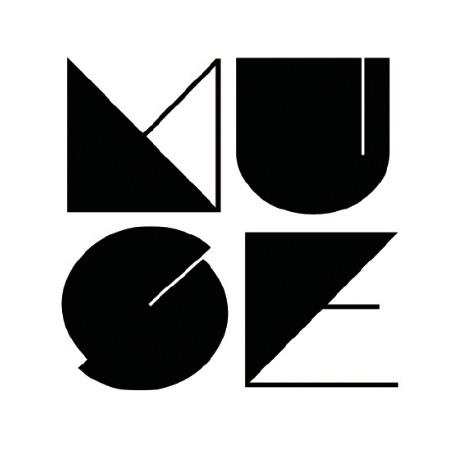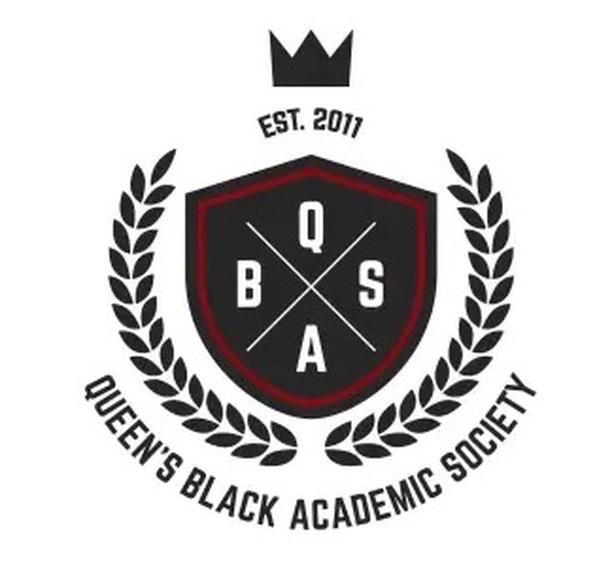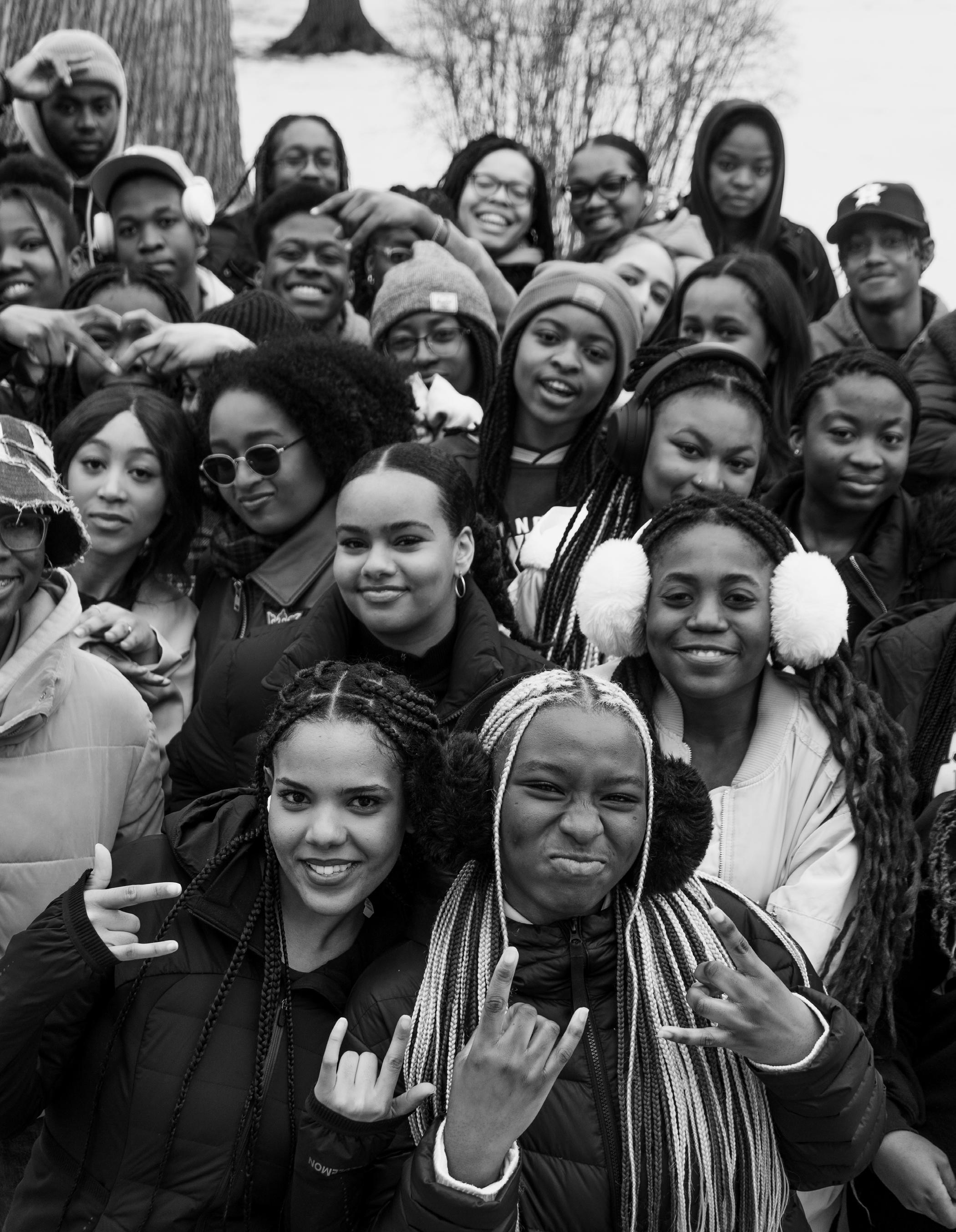E X C E L L E N C E NOIRE



The Queen’s Black Academic Society (QBAS) began in 2011 as a passion project between graduate and undergraduate students looking to foster community amongst self-identified Black students. These students were eager to engage in a dialogue surrounding the issues the Black diaspora faces and to discover their role in addressing these issues. Our mission is to support Black students and provide spaces for them to find their place at Queen’s. One of our most important pillars here at QBAS is our dedication to showcasing how multifaceted Blackness can be. In putting this zine together, we hope to showcase Black Queen’s students’ immense diversity, creativity, and talent.
For years within marginalized communities, art has been used not only as a tool to heal from trauma and express the harm their communities have faced but also to allow for the expression of different voices as a celebration of joy, pride, and resistance. While putting together this zine in honor of Black History Month, it occurs to us that February, the shortest month of the year, is not enough to adequately support and celebrate Black artists and creatives. This celebration should occur year-round both within and beyond the Black community.
Showcasing creativity in all its forms allows us to inspire and take inspiration from one another. Art in itself doesn’t discriminate and allows the creation of inclusive spaces for people to use their voices. In order to appreciate art you do not need to be able to recreate it; simply engaging with it is enough to appreciate it and gain some insight into the experiences of others. For allies, accessing our art is an act of solidarity. This zine is a celebration of all the different artistic talents present at Queen’s, and we hope you love it as much as we do.
Creatively yours,
Teshi Bollo-Kamara and Amaiya Walters QBAS President and Vice-President 2022-23A blank canvas is like a running stream, never ending possibilities can beam, through a simple paintbrush and an abstract mind. My canvas is blank but in time, will turn into a masterpiece, through the intricate strokes of my paintbrush. Every stroke is like a seed being planted, and as the roots grow deep I remember every drop of water I took for granted. I use watercolour to paint on my canvas and watch the droplets trickle down. My palette is diverse, a mosaic of colours flowing together to create a beautiful
composition. The mixture of colours ignites a flame that cannot be put out nor be put to shame. I embrace my completed painting which started plain, I acknowledge the paintbrush that was soaked in water to retain the essence of diversity, pride and beauty of the paint. As we celebrate pride and culture this month, remember what your canvas symbolizes. Your background and your history are who you are. So embrace your differences, celebrate your uniqueness because you are a masterpiece.
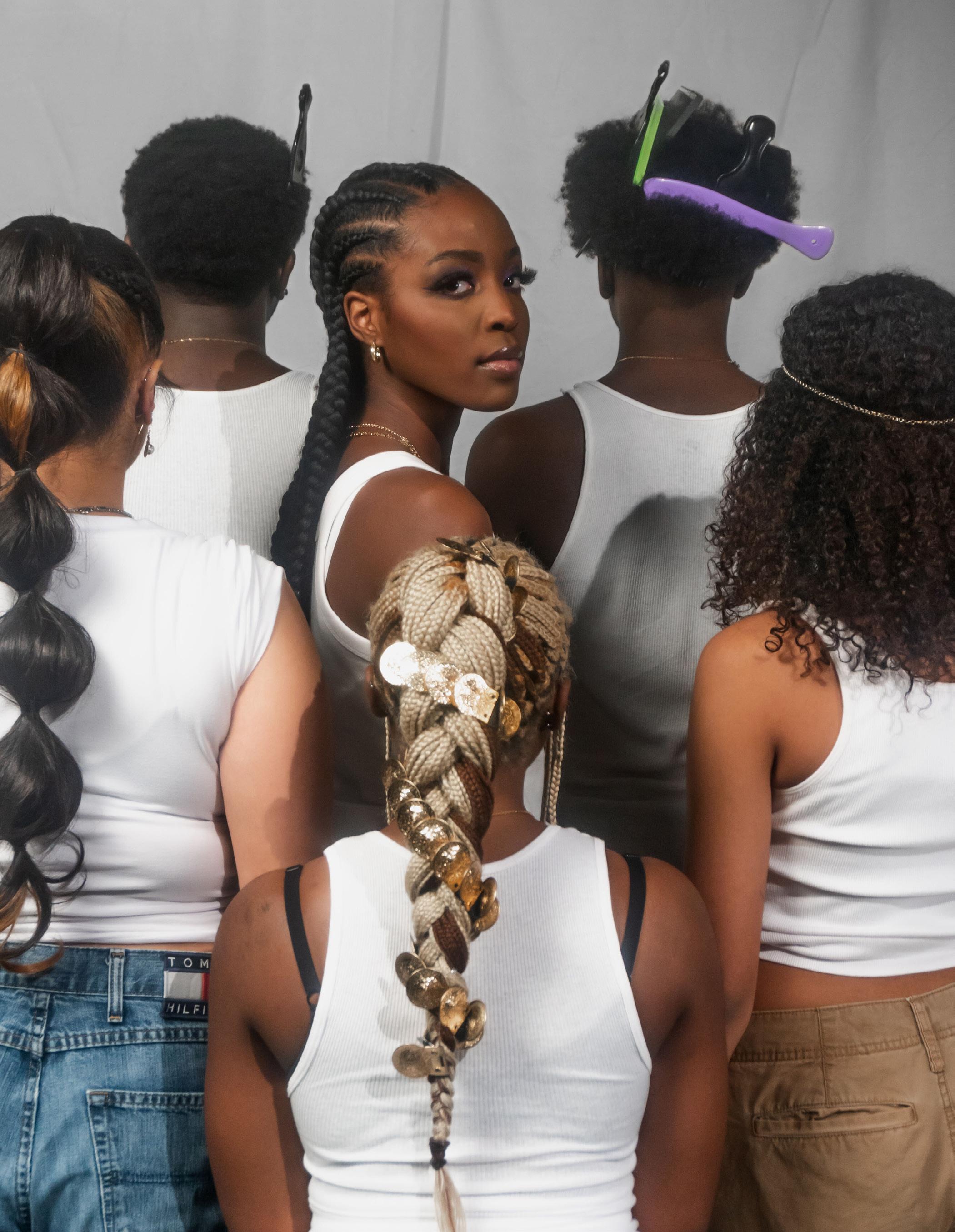
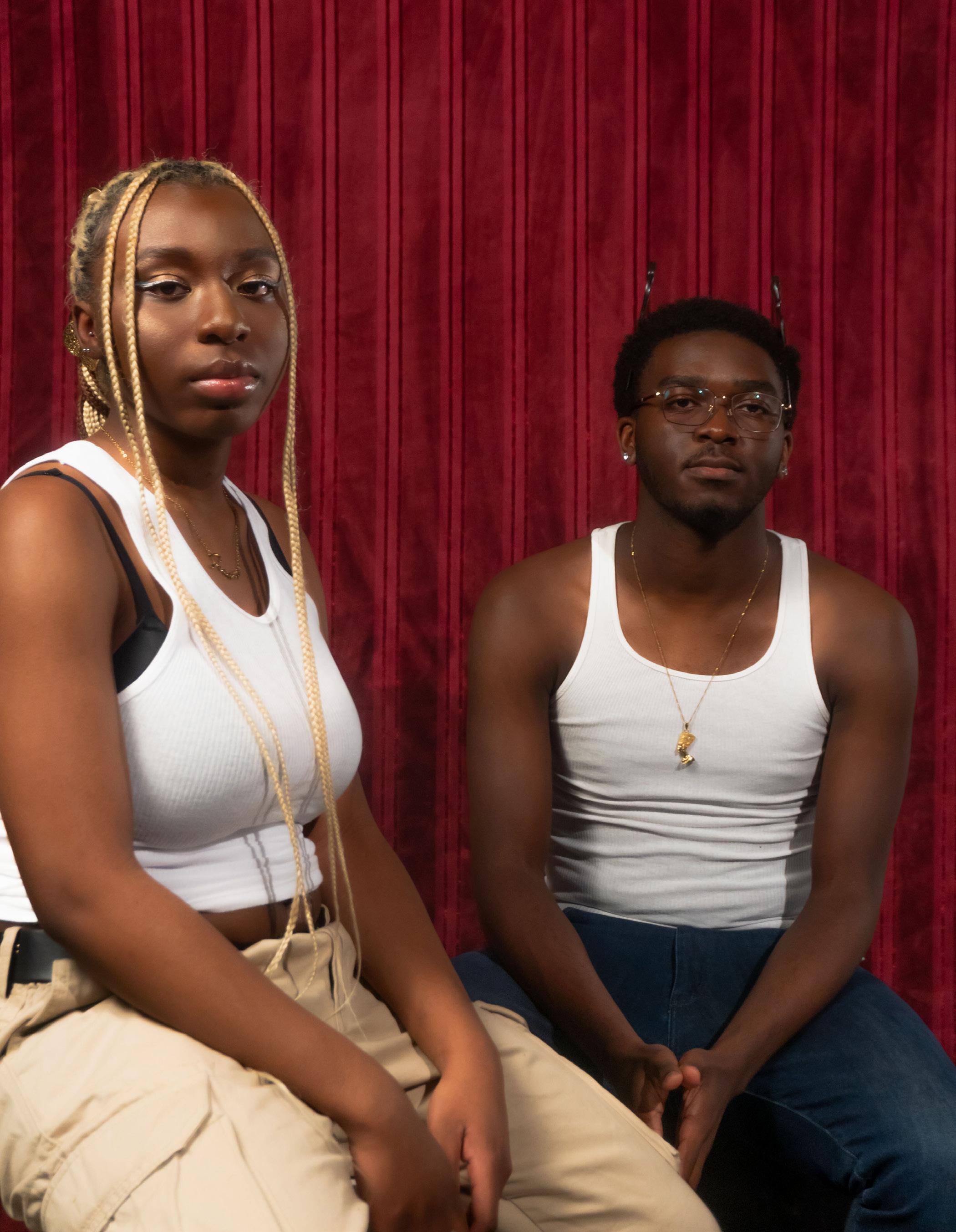
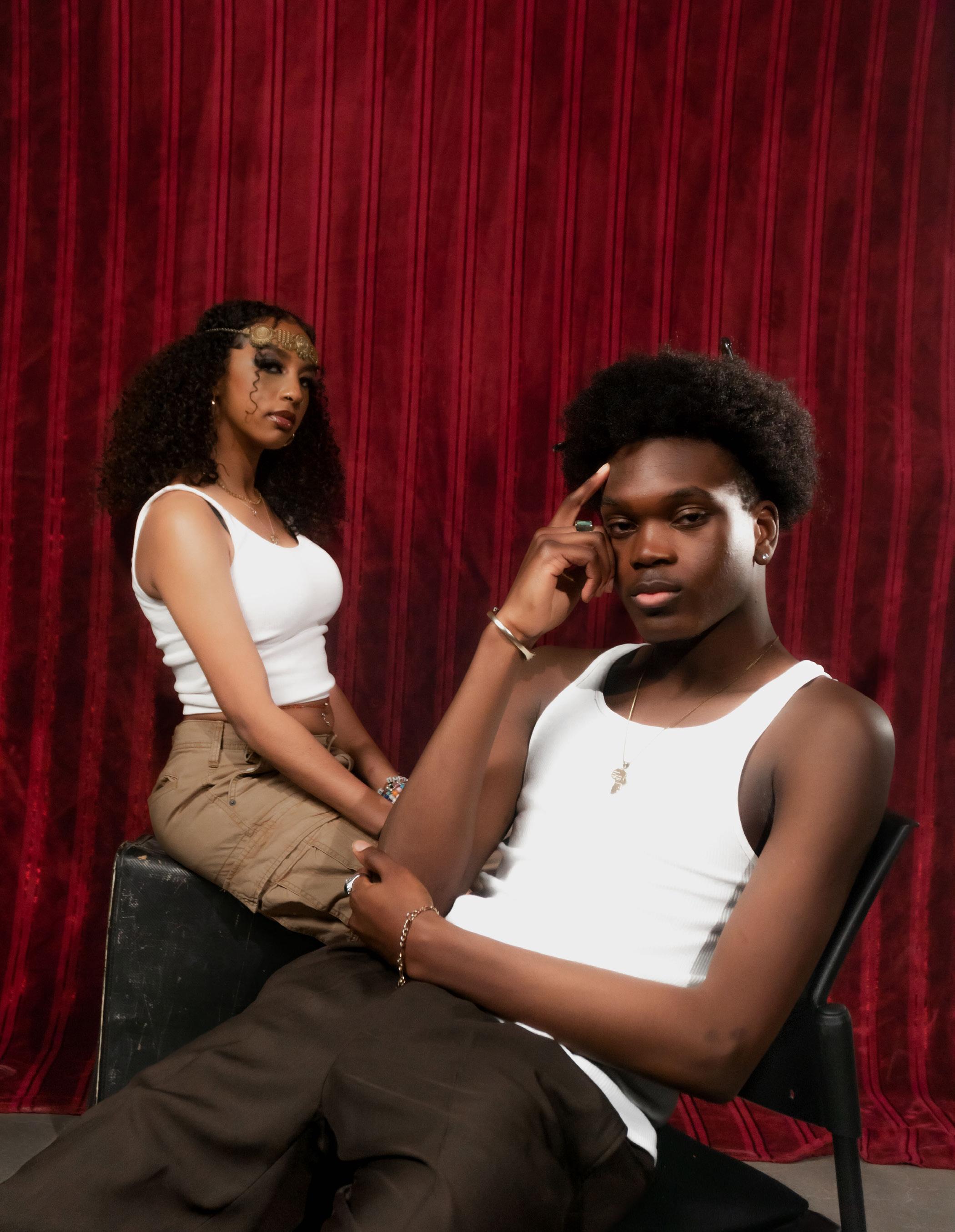
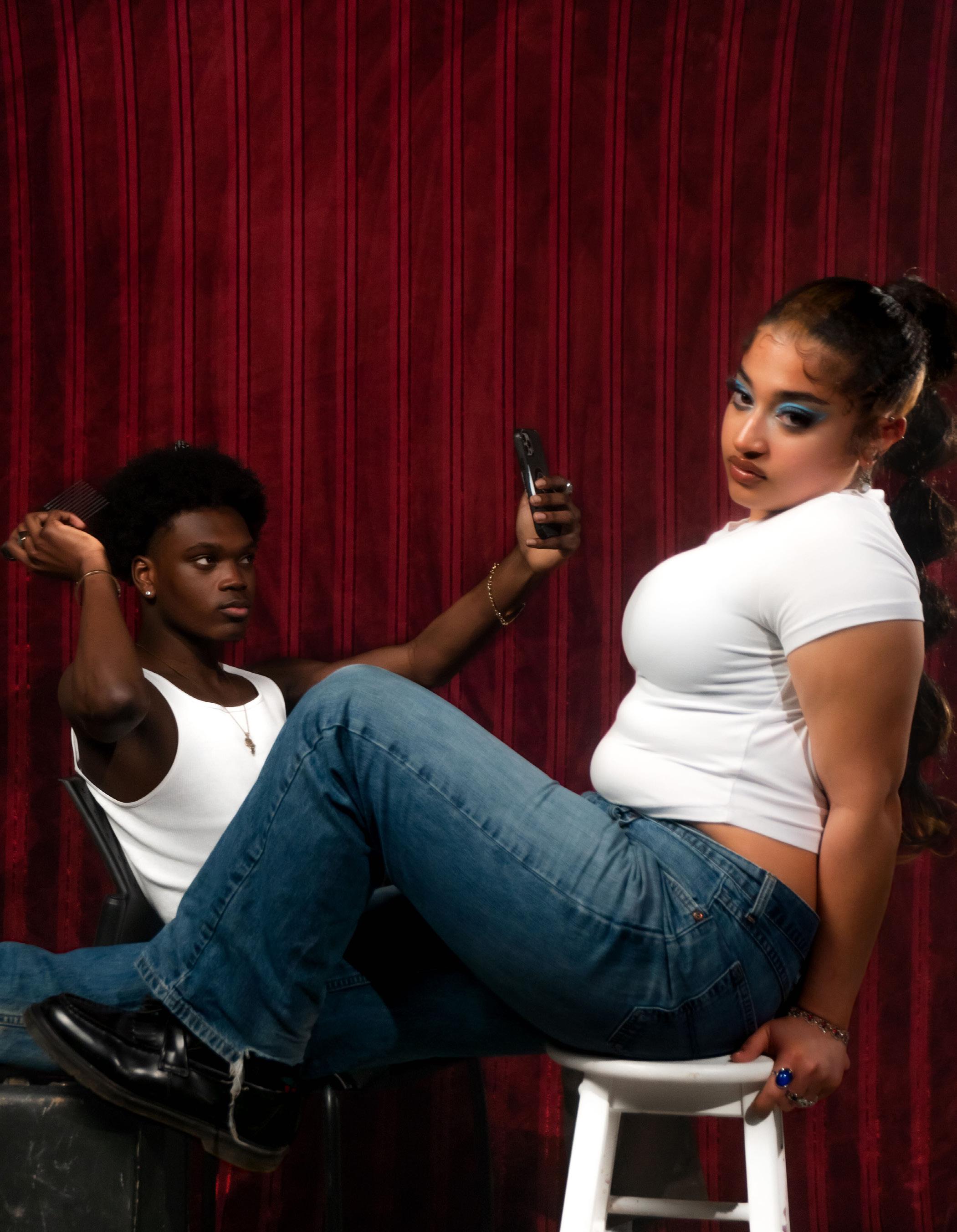
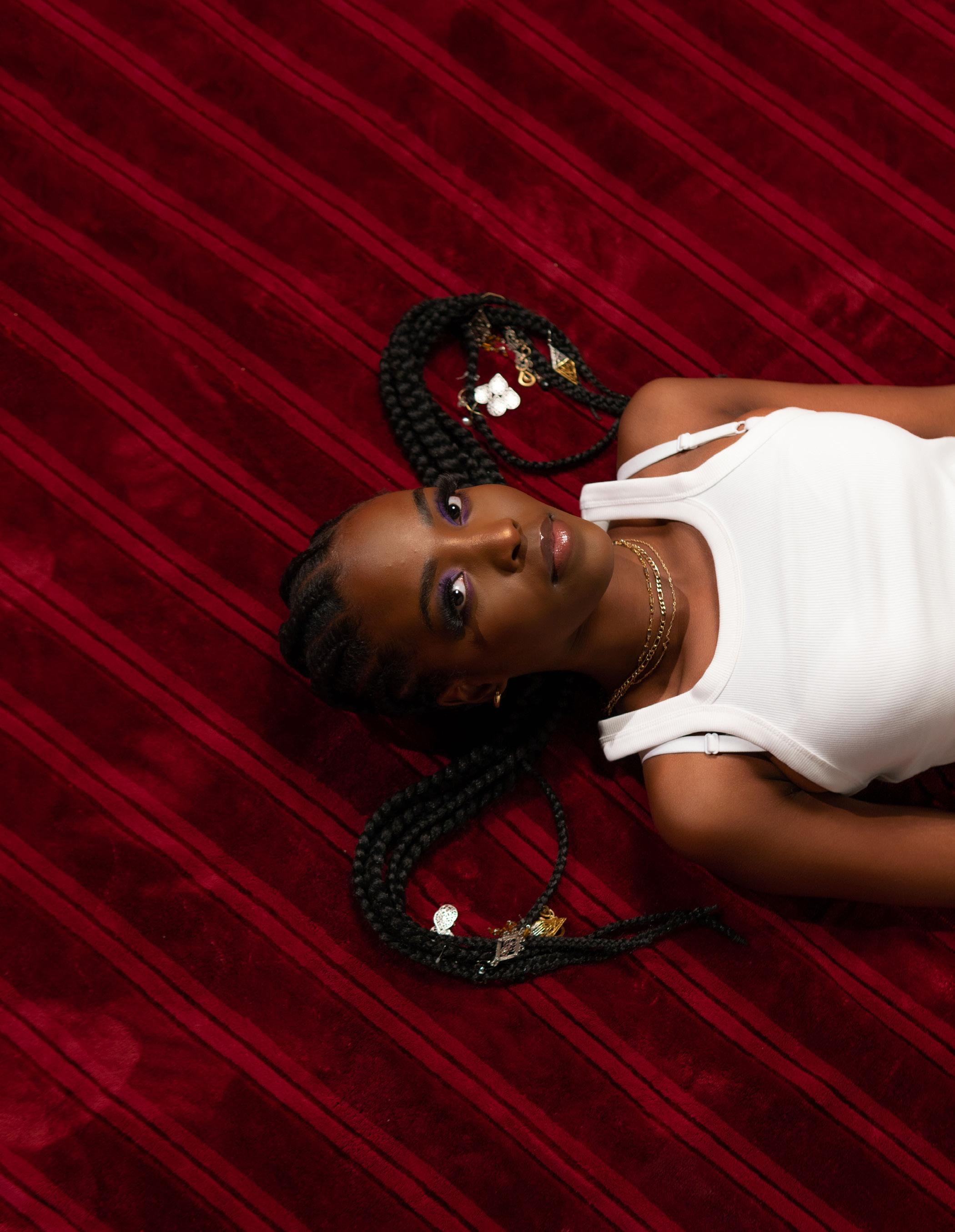
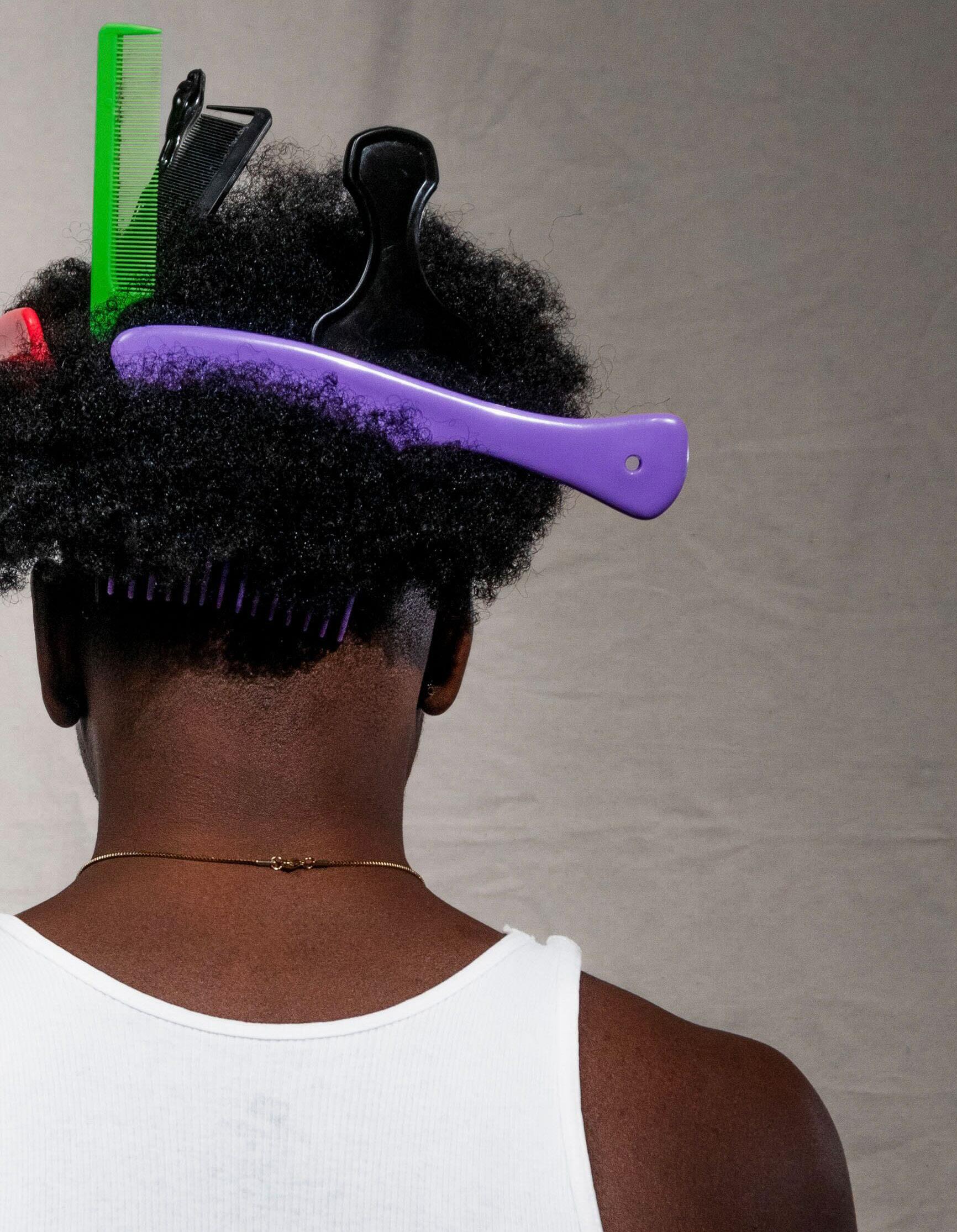
Black hair is an art form and expression. It serves a purpose, It has meaning and intention. So pay attention, because you’re about to learn a lesson
On our hair and its importance
Here’s the answer to your question; these…
…4C curls and kinky twirls – they look, Flawless on Black boys and girls. It takes nurturing care to yield that shine like pearls.
Because it’s more than just hair, For many, it means the world.
Now let’s look at the history. No longer shall Black hair be a mystery.
In the past, our people were lacking maps,
So they used cornrows to navigate, Their plats would mark the tracks…
…To escape from the plantation, Travel to a destination,
Where they’d gather together and celebrate emancipation.
Congratulations, Now you know more than before. But that’s just the beginning, It’s an entry through the door.
Let’s make it personal – what does Black hair mean to me? Well, my roots connect me literally to history.
But my ends are what express my true identity.
See my ends are what display my creativity.
My hair it sends a valued message, That I am free.
And see this message is important to share because,
Now you understand why it’s more than just hair.
I said I hope you understand why it’s More
Than just Hair.
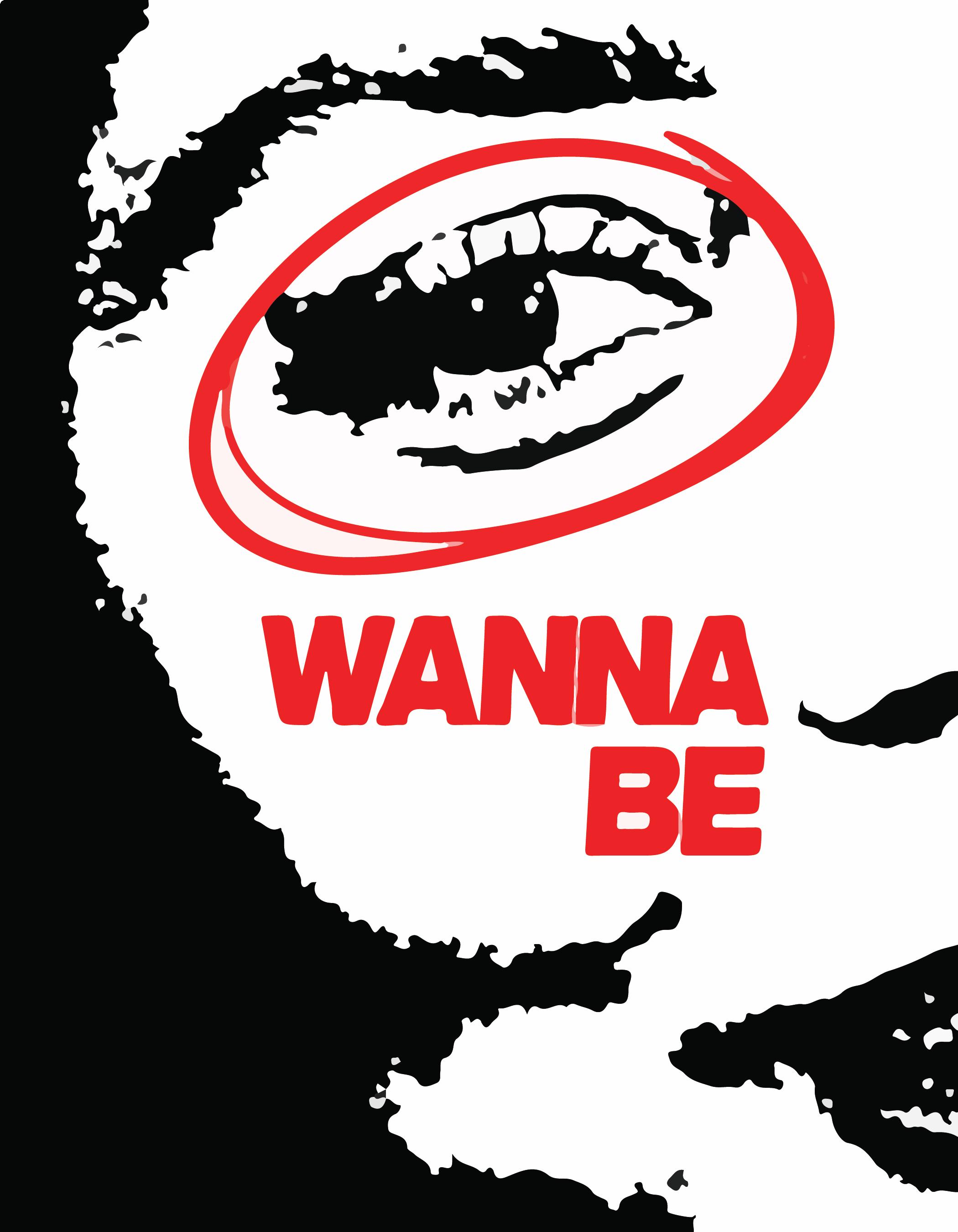
Dalyah Schiarizza
and my relation to that and Blackness as a whole, my thoughts wander to Black women. Throughout my life, there have been Black women who inspire me and lead the lives I once wanted and currently want. These Black women remind me of all I am capable of, the dreams I can reach for, and the paths I can run down. Above all, these Black women have contributed in some important ways to the woman I wanna be.
Black History Month is a very reflective and explorative time for me. I find myself looking to the past and future, critiquing the present, and working through the emotions of exploring Blackness in a white supremacist society. The past and present are littered with harmful histories that require revolution and reform. Still, it is also filled with beautiful achievements and legendary figures which show the world Black excellence in various fields and ways. As I consider Black excellence
Ida B. Wells is an important historical figure that is overlooked in history and has recently become an inspiration to me. Ida B. Wells’s activism truly resonates with me as she is under-spoken about during Black History Month and is an admirable woman when considering who I wanna be. In 1884, Ida B. stood up to racial segregation rules on public transport, which was a whole 71 years before Rosa Parks. Ida B. was on a train with the first-class ticket she had purchased, but the staff tried to physically take her out of the ladies’ section because she was “unfit” to sit there as she was Black. She resisted the staff’s attempts, eventually sued the railroad company for assault and discrimination and won $500, roughly $15 000 in today’s currency. Ida B. also researched the circumstances of 728 lynchings after some of her close friends were murdered in this manner, which contributed to understanding the racialized aspect of lynchings and contributed to anti-lynching campaigns. This small history recap not only explains why Ida B. should be spoken about while recapping Black History and opposition to Jim Crow, but it also demonstrates her strong sense of confidence and justice. In the past, I’ve written insights into how I have been a people-pleaser and struggled to set boundaries. Ida B. inspires me to
be confident and firm when I see and experience injustices. This may not look like fighting off train staff for me, but it will look like using my body and voice to stand up for what’s right. As someone with a background in Gender Studies, I understand many of the flaws in our society. I individually avoid and disapprove of platforms, people, and ideologies that discriminate and oppress. However, I will become more like Ida B. in the sense that I will openly and actively speak up against these systems and people that oppress. In my life, this will look like using my ability to write to call out harmful and racist media and people while also looking to offer solutions on how to correct these situations and improve them to create a better future for Black people. Like Ida B., I will be using my time and energy to investigate and address the issues that are personal to my loved ones and me. If I could ever be so lucky, I wanna have the confidence and strength that Ida B. had to pursue what matters to her and contribute to the changes that will create better futures for Black people.
Perhaps lesser known, I came across the work of Zakiya Dalila Harris and was wholeheartedly mesmerized. Harris wrote one of my all-time favourite novels, The Other Black Girl, which displayed issues like respectability politics and the perception of textured hair in a white supremacist society through a science fiction lens. This book is now in the process of becoming a Hulu TV series. Beyond being a successful Black author, she is also a great Black author. I wanna be an author and a writer in both fiction and nonfiction realms, and she is someone I aspire to be like. The way she writes with this remarkable ability to reflect the real world
for Black women navigating corporate spaces with an engaging and dramatic plot that highlights the conflict of Black textured hair in western contexts. Since hair is an integral part of Black identity and has been historically criticized, it is crucial for there to be Black-led dialogues and discussions on the complex relationships between Black people and our hair, especially for Black women. Harris also wears her natural curls very often, demonstrating her comfort in her identity and the strength it offers her. I wanna be like Harris in the sense that I work more with my natural hair and figure out how to navigate the hardships that come with natural hair in a white supremacist society. I wanna be a storyteller like Harris who can integrate valuable perspectives on issues that influence my life and matter to me into the fiction I write. I wanna have the texts I write transformed into visual media like shows and movies that can reach more people and impact them in the way The Other Black Girl has had on me. I hope to help others consider their positionality in this world and how their knowledge and insight could transform our understanding of the Black experience and new ways to make the future better for Black people, which will ultimately uplift all radicalized people. I wanna be like Zakiya Dalila Harris because she inspires me to think about my Blackness through writing in fiction that helps me consider the issues that matter the most to me in different ways and imagine futures where Blackness is wholeheartedly embraced.
This article would not be complete without mentioning the superhero of my childhood
and an important figure in my adult life, too: Beyoncé. When I was young, like six or seven, I already had a profound love for both music and Beyoncé. My childhood aspiration was to be a singer that sounded just like her. So that’s precisely what I did; I would sing Beyoncé’s songs to myself every day until I sounded like and sang with even half the talent she has. Those efforts worked very well in my favour because I did develop a strong voice that sounded to many like I had some professional training, but all that happened was a little girl and her hero singing in her room. I sang until I was seventeen, which I can now understand as carrying a manifestation of my connection to Black culture with me throughout my life. Even though this sweet story shows how I’ve always wanted to be like Beyoncé, my respect and adoration for her have followed me into my adult life. Over the course of her career, she has achieved a royalty-like status where most people recognize her talent and have respect for her, which is remarkable given how Black women in western society are often villainized and gravely mistreated. She recently earned the title of winning the most Grammys ever, with thirty-two golden gramophones. I dream of having a similar work ethic where many people can grow to have an undeniable respect for and trust in my writing talents. I wanna have a strong connection with my audiences so that when I do publish my work, they can have faith that it will be remarkable while also exploring new
avenues in subject and style, very similar to how so many people had such high expectations for RENAISSANCE and the album has had great success and received multiple awards. Every version of Dalyah has admired Beyoncé, and we will always wanna share her talent and essence in all the projects we pursue, whether it’s singing alone in our bedroom or publishing works for the world to read.
The woman I wanna be has been shaped by the work and legacies of so many Black women who came before me, but Ida B. Wells, Zakiya Dalila Harris, and Beyoncé are the three who hold a special place in my heart and mind. There are so many other remarkable Black women, public figures or not, who have the traits of excellence, compassion, talent, and authenticity that inspire the woman I wanna be as I grow into my own. Honour the Black women who inspire the person you wanna become in your own way. Maybe you’ll include Viola Davis in your vision board now that she’s now an EGOT or pick up a copy of Black Girls Must Die Exhausted by Jayne Allen because you love a good story about Black women’s friendship and personal journeys. So during this Black History Month, let’s all think about the person we wanna be and remember the Black role models who inspire us to be our greatest selves
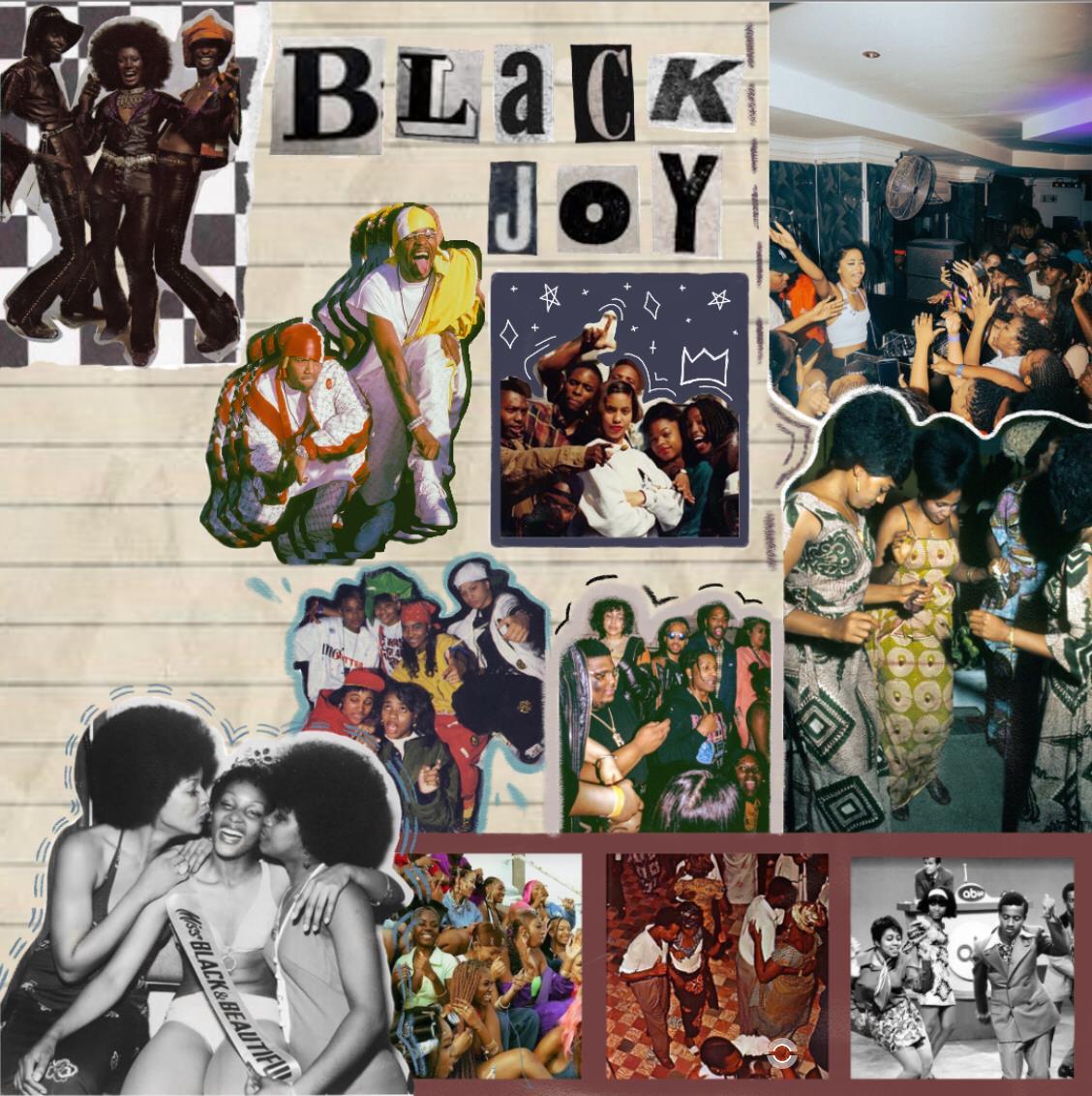





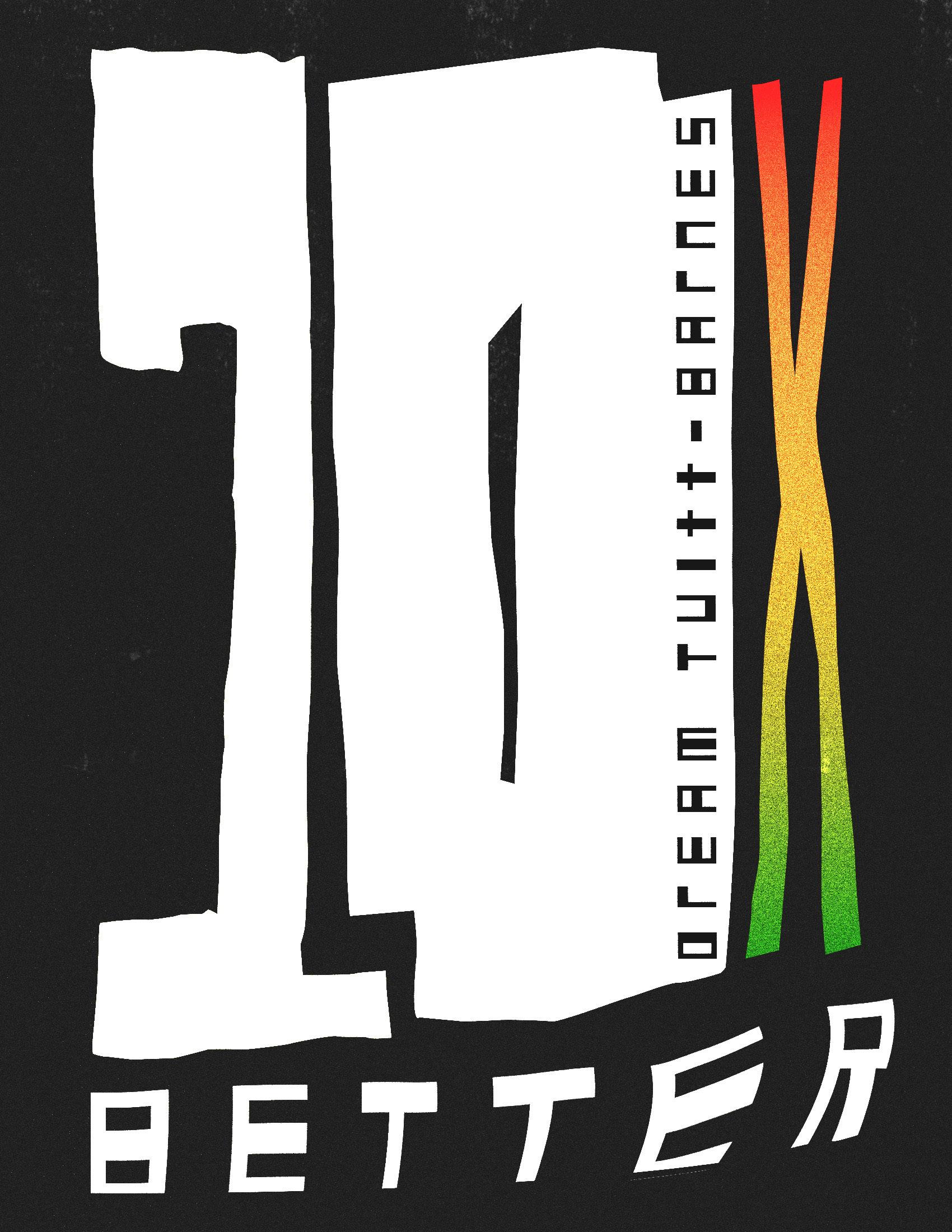
Growing up I was told to always give it my best shot
As a kid I was told to always do a lot
As I got older, I remember the first time I lost
Growing up I remember the resulting mental exhaust
Growing up I was taught a lesson from a young age
A lesson that I remembered as I entered every stage
Most kids grow up knowing that their best is okay
Well not every kid has that privilege every single day
Minority children are taught that their best isn’t always good enough
It’s a sad truth but it raises us to be tough
Well, tough and prepared
Prepared to not get the job we’re qualified for
Despite having more skills than white girl
number four
Prepared to not be picked as the face of a brand
Prepared for everything to not go as planned
Taught to be not one not two but ten times better
I can’t go into the long-lasting effects in this letter
It’s one of the lessons every black kid has been taught
Ask any black individual, I kid you not
Be ten times better to get the job that you desire
Be ten times better to be the new hire
Be ten times better to make it anywhere
in life
Be ten times better to escape a life of strife
What is it to be ten times better
It means you have to work harder, fight smarter, and be a go-getter
It means sometimes you’ll miss out on all the fun
Because you’ll be busy trying to figure out how to make that home run
It means you can’t ever afford to not put your best forward
It means you can’t afford to be ordinary
You can’t be average, Be extraordinary
Extra - ordinary describes it perfectly
It describes what it means to be a minority child earnestly
Do everything extra well, with extra effort and extra time
The key meaning being putting in extra
I need to be 10 times better, that should be a crime
These 3 words, 14 letters, 4 syllables are what it takes to be on top
Be 10 times better, I can never stop My words
They’re more than a couple of emotions, Like an idea by King or Tubman
They’re strong ever-present notions
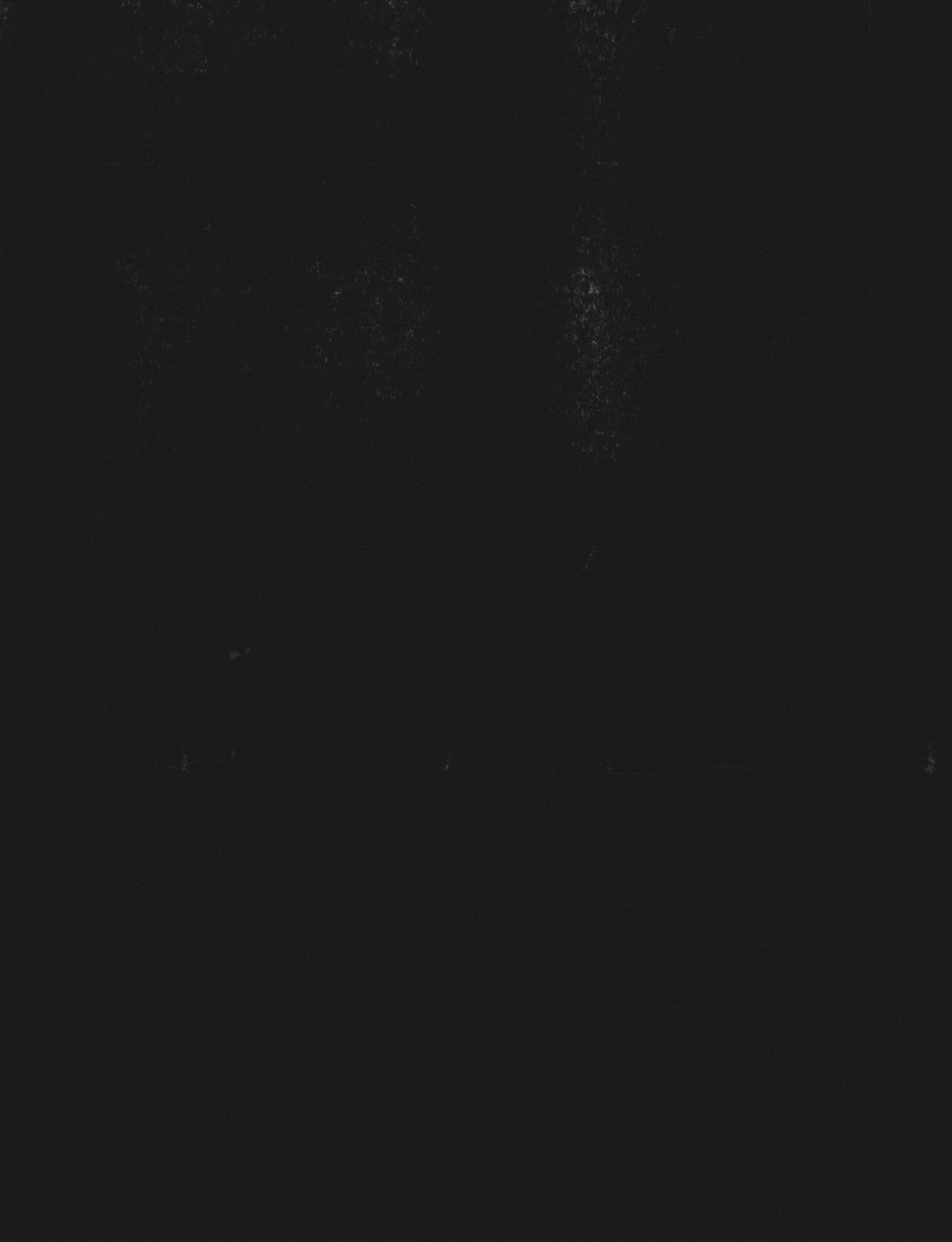
3 words, 14 letters, 4 syllables
A phrase some will never have to feel
Does it suck? Yes but,
It just means my skin has to be strong as steel
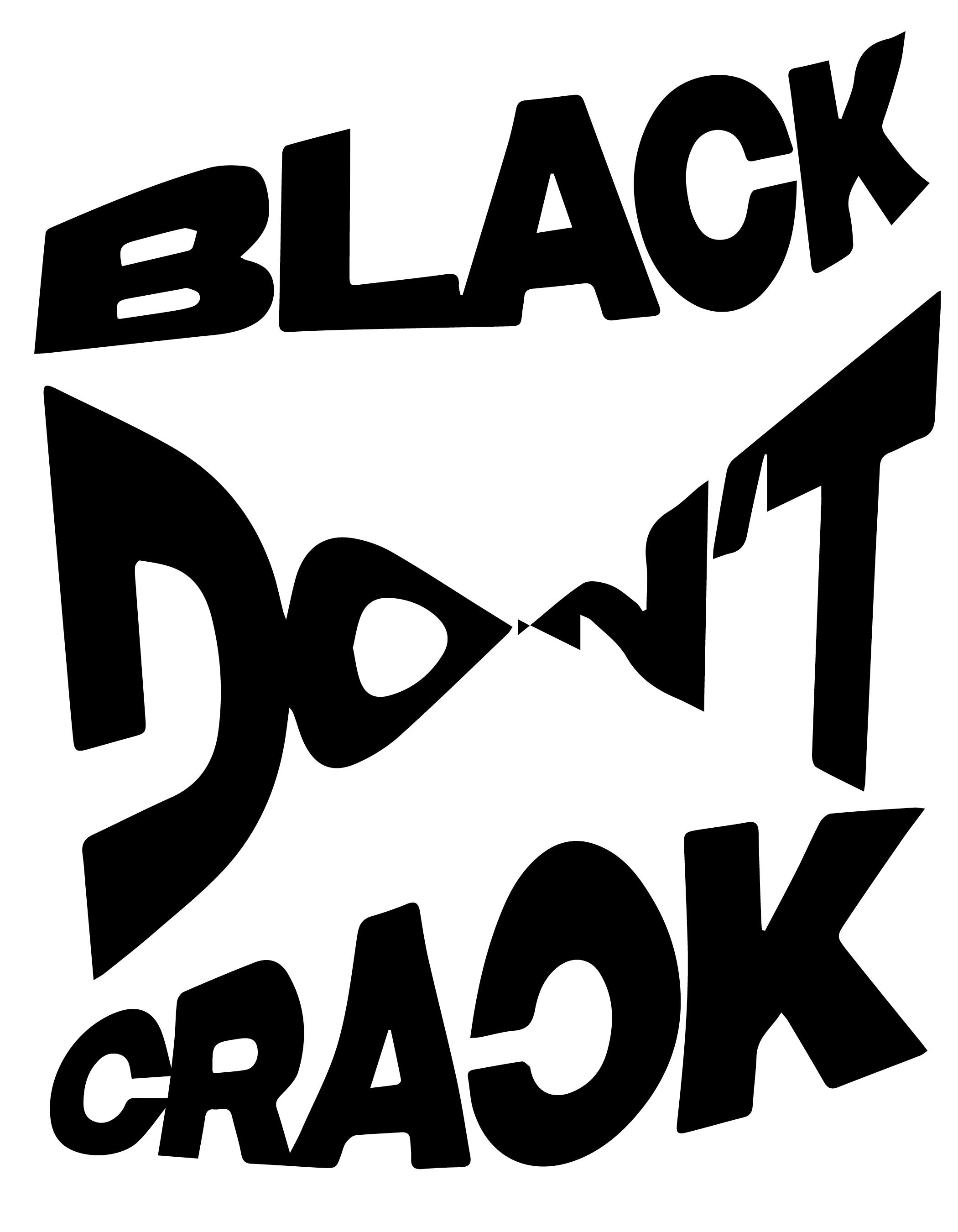
Black don’t crack with age
But Black cracks on a public stage
A stage where melanin isn’t viewed in the right light
A stage where Black cracks from fighting the fight
The smallest crack exists in the Black face
The moment one learns about the confines of race
Like an archaeologist chipping away
The crack spreads with each hit by the hammer molding the clay
The hammer that hits with each microaggression
The hammer that hits with each display of oppression
The hammer that wears down the Black face with time
Black don’t crack, that saying is a crime
White the depiction of beauty
With melanin the beast
Black cracks from being devoured
Like a Thanksgiving feast
Black cracks under the pressure and pain
Of a world where being Black causes no gain
“Black don’t crack” the people like to say, Maybe not on their average day
Then again, the average day of Black isn’t the bright sun and blue sky
The average day of Black is like playing I spy
I spy looking for the beauty in a world
Where being Black isn’t the typical definition of a pretty girl
Black biased against on the skin colour wheel
Against a spectrum of other shades
Black doesn’t crack, Unless it’s from racism’s blades
Black don’t crack isn’t a true phrase
Not because of skin, For we’ve been fighting against old ways
We fought against slavery,
We fought against false ideas of camaraderie and bravery
We fought to have all the same rights
We fought in numerous battles and plights
We fight against stereotypes of criminality and drugs
We fight to show that we are not thugs
We fight against colourism within our own race
We fight to show the beauty in the Black face
We fight to show that we are royalty
We fight to promote loyalty
We fight to show that we are kings and queens
We fight to show the strength in our genes
Despite our fight
It would be a lie
To say that Black hasn’t cracked from the plight
The cracks sometimes invisible
Other times apparent as can be
Not every crack left behind Is one that can be blatantly seen
Some of the cracks will never reach the light
Some will never heal from racism’s bite
Importantly, Not every crack will heal
But the cracks are necessary to remind us
Of why we fight with zeal
Some days they’ll remind us of the pain we’ve endured
Others of a dark past
However
These cracks will serve as proof
Of the strength we’ve found at last
Black don’t crack
A concealing phrase that displays a strong facade
But maybe we shouldn’t be hiding the symbols of our strength
Maybe they should be applaud.
Next time you hear Black don’t crack, Don’t just think of skin
Think of the strength and courage
That lies deep within
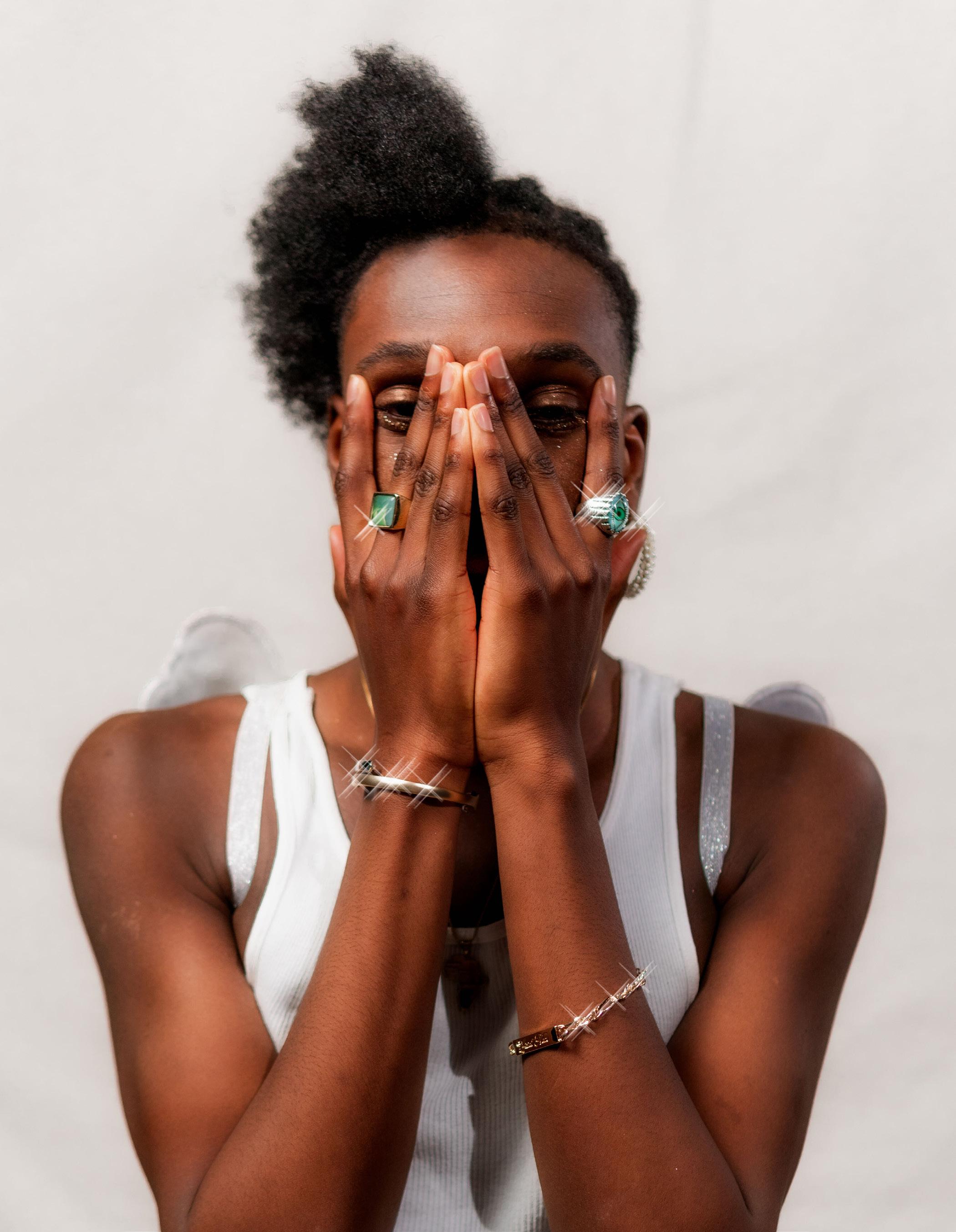
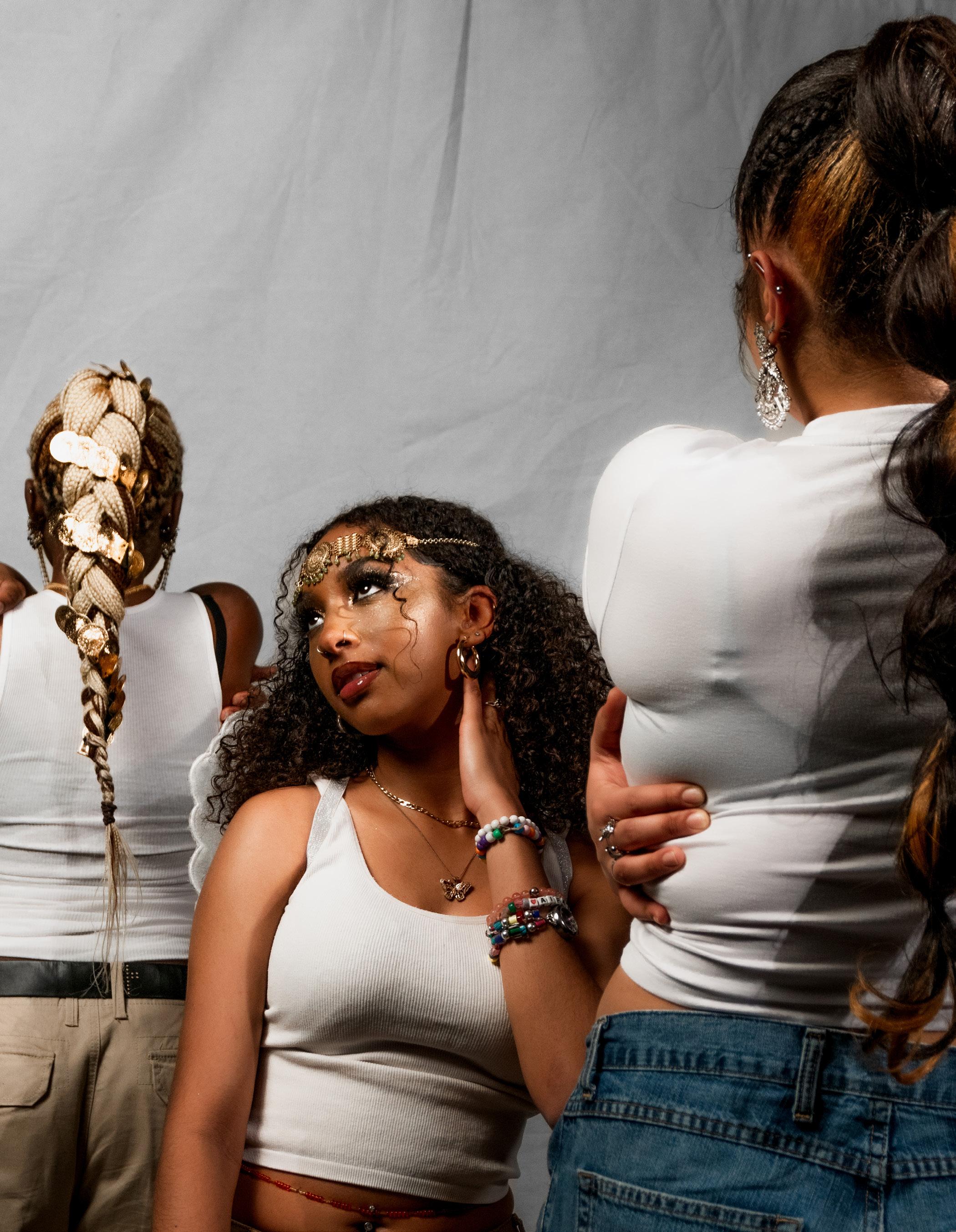
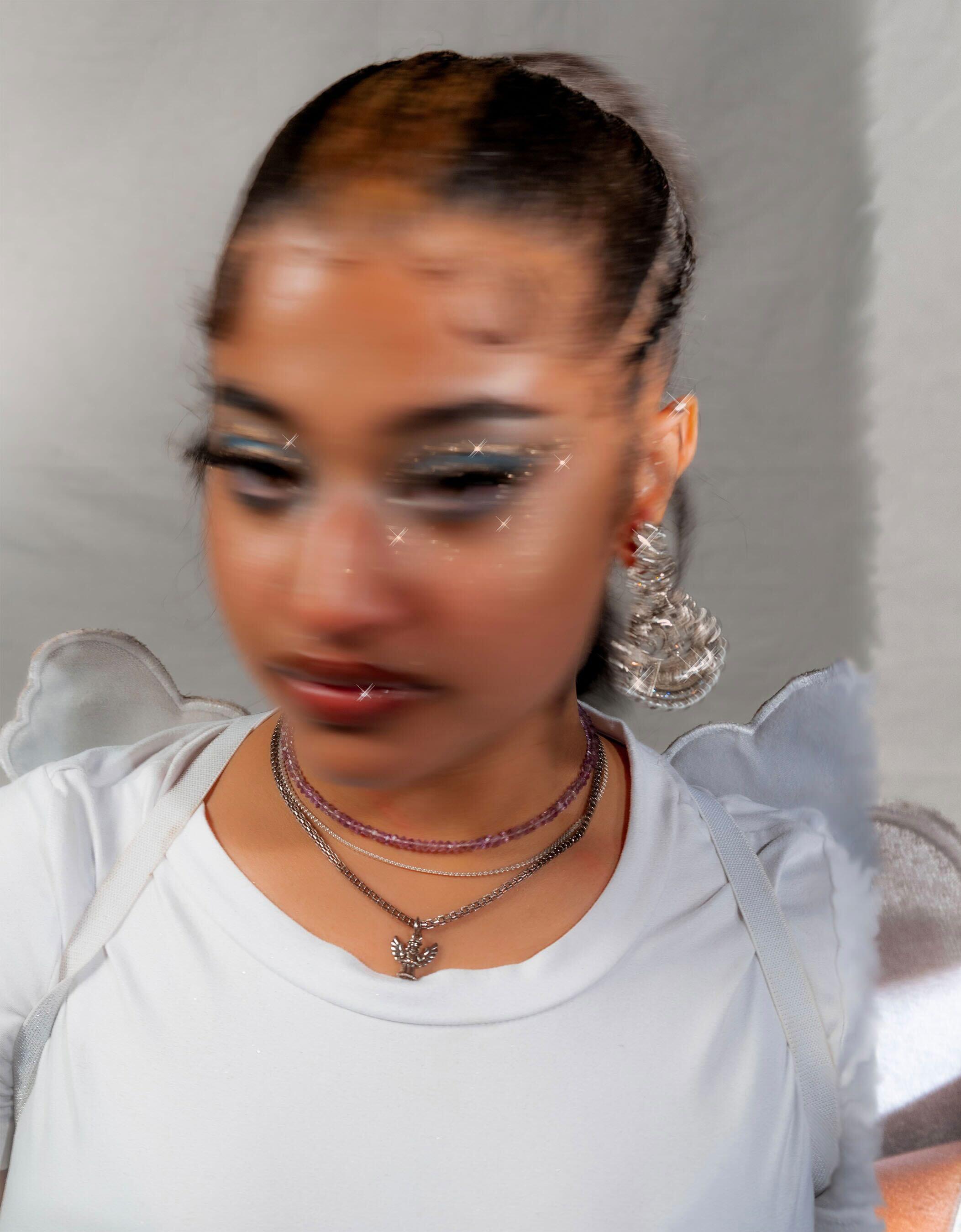

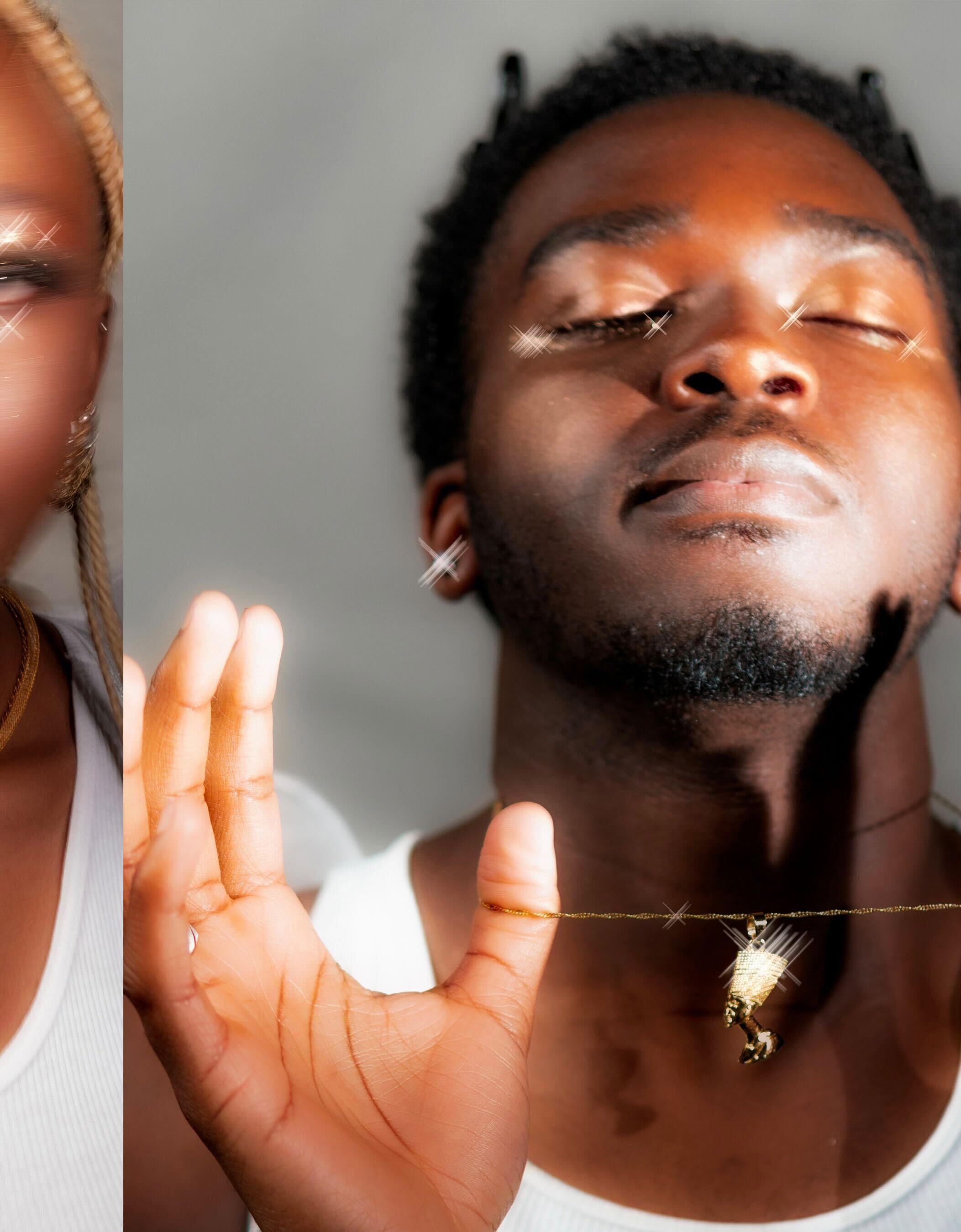
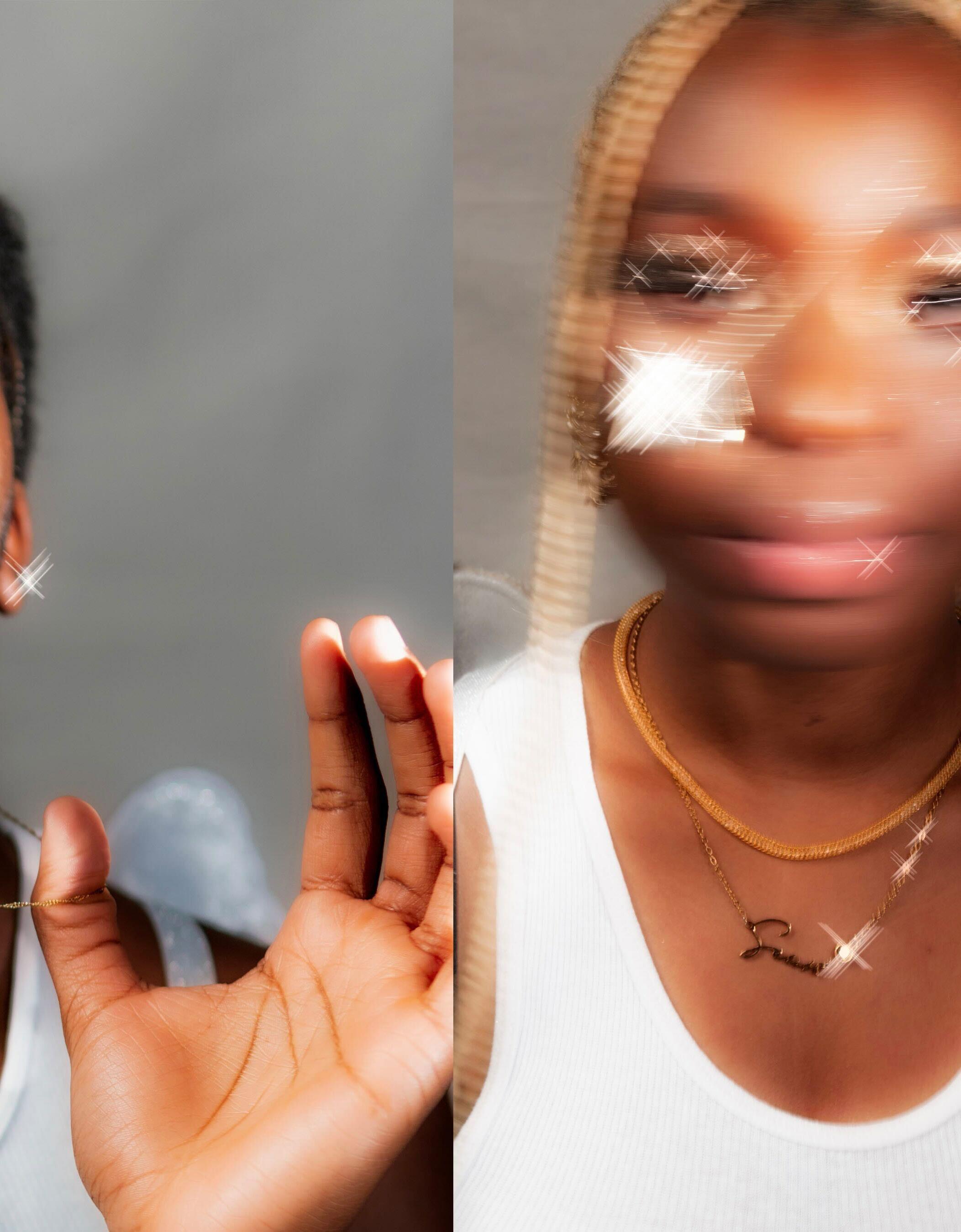
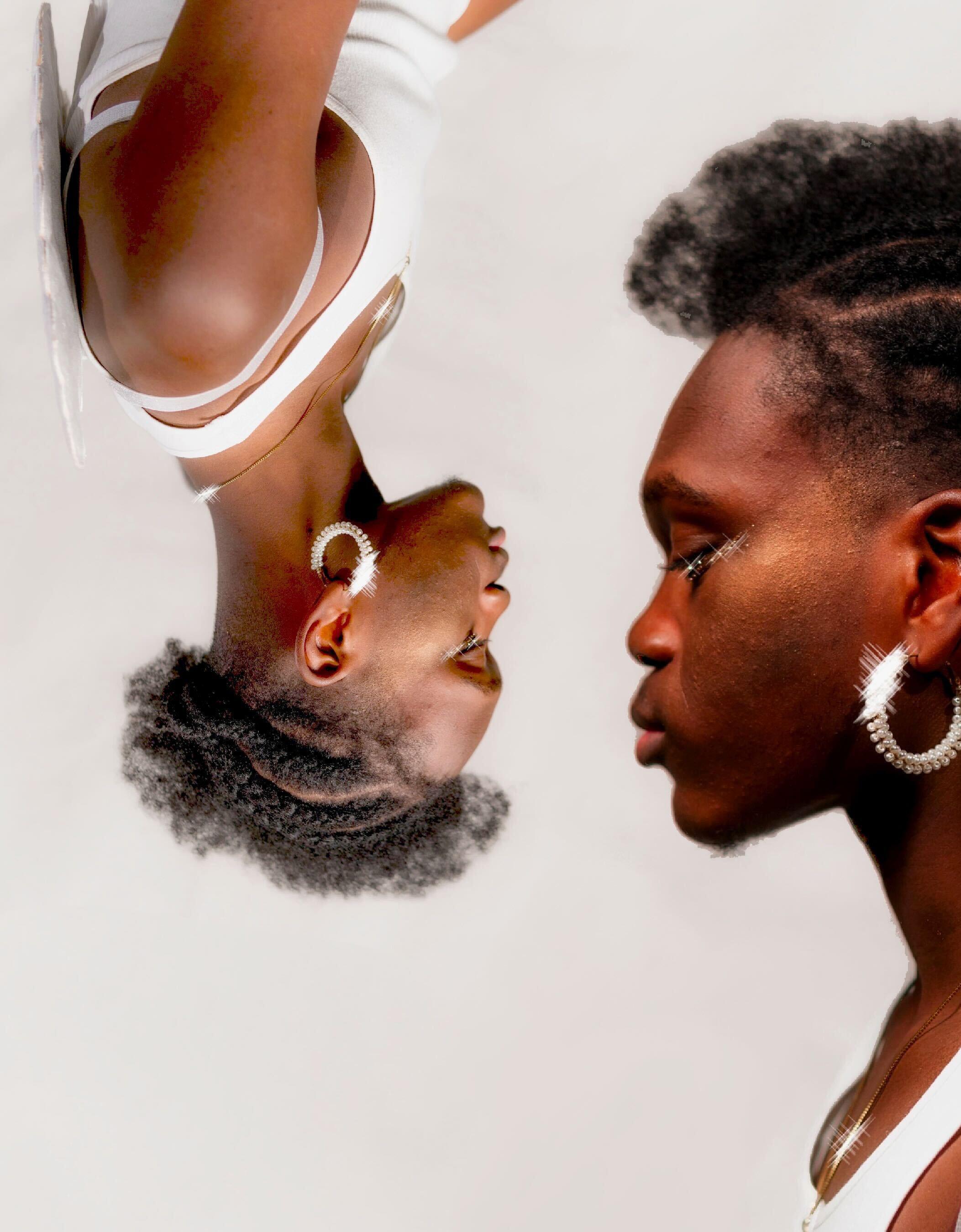
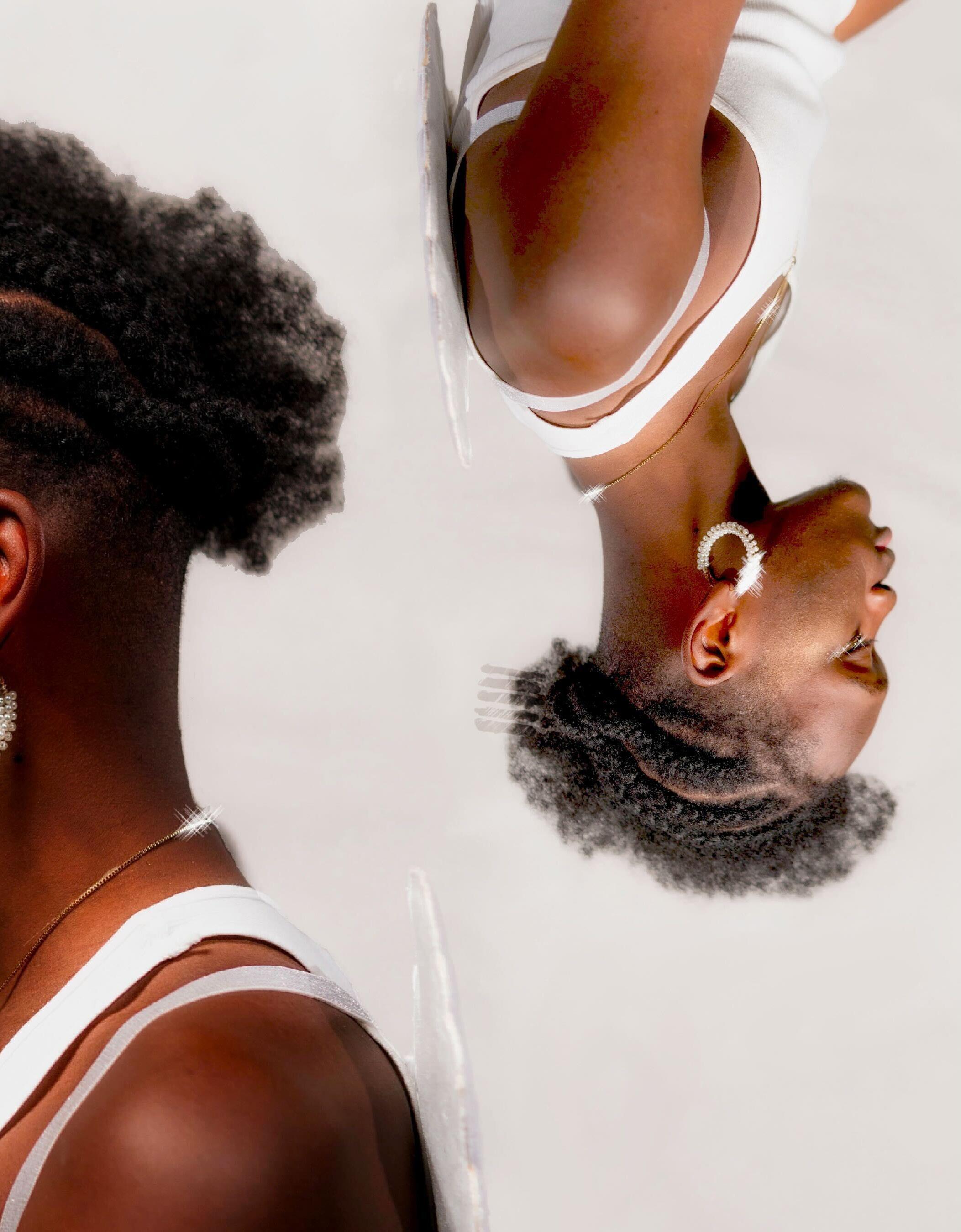
EDITOR IN CHIEF
Joanna Petropoulous
DIRECTORS
Creative Director
Rida Chaudhry
Online Director
Liz Gonzalez
Print Director
Alissa Bressler
Marketing Director
Tiana Lam
HEADS/MANAGERS
Co-Head of Layout
Armita Dabirzadeh
Head of Graphic Design
Mike Passler
Head of Videography
Nathan Hawes
Head of Social Media
Ellie Horning
Radio Show Manager
Jack Selby
MAKE-UP ARTIST
Claire Matthews
EXEC President
Teshi Bollo-Kamara
Vice President
Amaiya Walters
EDITORIALS Director/Photographer
King David Olajuwon
Hair Stylist
Theresa Ibonye
Victoria Okwudi
Make-up Artist
Nifemi Adeoye Models
Erhowvosere Otubu
Al-Barr Ajiboye
Deborah Akinbile
Binyat Akrem
Shada Barkho
Kesha Ongagna
SUBMISSION EDITORS
Bianca Blackwood
Alexis RADIO SHOW GUESTS
Kidus Leul
Madison Taylor
